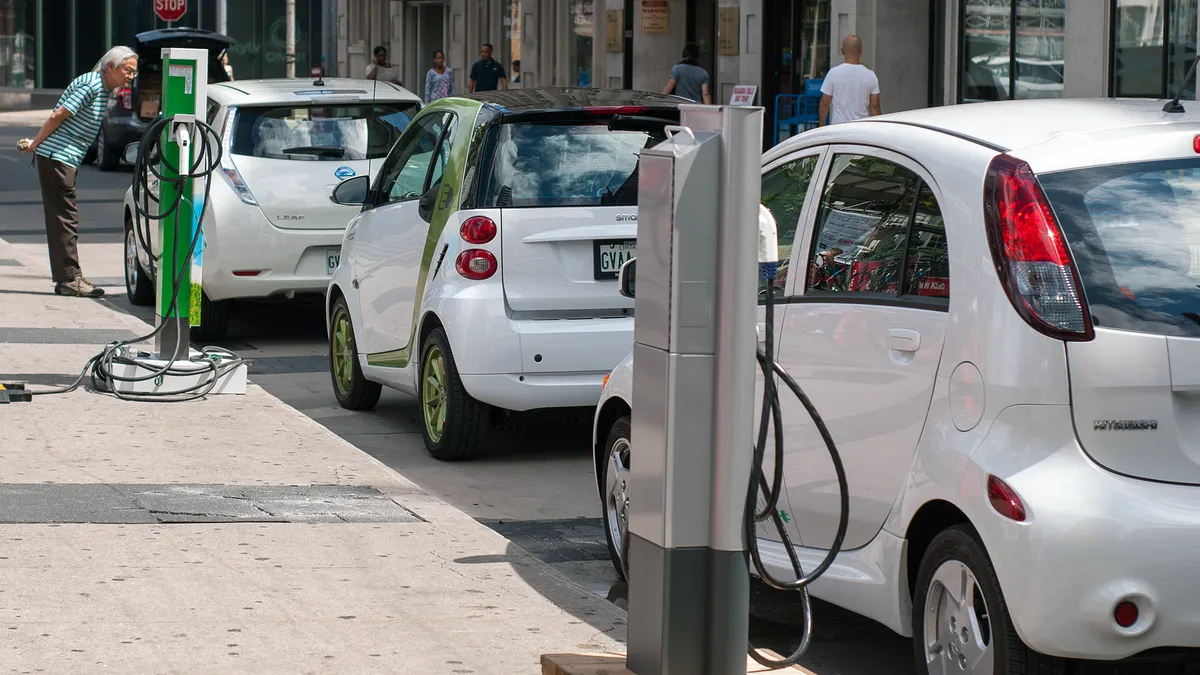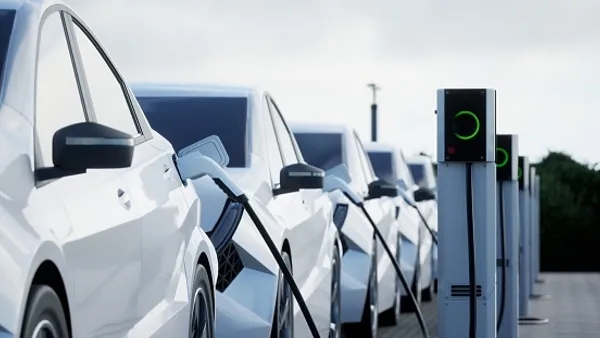Dive Brief:
- Georgia’s House Bill 170, effective July 1, repeals the state’s $5,000 tax credit for the purchase of an electric vehicle (EV) and imposes a $200 registration fee for EV owners. It also eliminates Georgia’s fuel sales tax and other sales taxes in favor of a single excise tax which increases from $0.075 per gallon to $0.26 per gallon.
- The Transportation Funding Act of 2015 is expected to generate $830 million to $850 million per year for the state but is expected to increase the cost of driving and slow Georgia’s skyrocketing EV sales. One estimate concluded the current $2.77 per gallon average price of gasoline in the state will immediately rise to $2.86 per gallon.
- The new law is also likely to slow response to a new vehicle charger program, launched last year by Georgia Power. It provides a $500 rebate for business customers that install 240-volt Level 2 chargers.
Dive Insight:
Georgia Power’s charger program also offers a rebate for residential customers that install a home meter-charger combination. They get an electricity rate for charging that is equivalent to $0.43 per gallon.
California leads the U.S. with over 100,000 EVs. But Georgia, driven by its $5,000 tax credit and the federal tax credit of $7,500, has about 20,000 EVs and is the country’s second biggest market. It has also been one of the fastest growing, jumping from 4,473 registered EVs in Q3 2013 to almost 19,000 in Q3 2014.
“The electric power industry expects a 400% growth in annual sales of plug-in electric vehicles by 2023,” according to a December 2014 report from the U.S. Department of Energy. That would put 2.7 million electric cars on U.S. roads.
A Georgia State University Center report found the state's EV tax credit cost the state over $1 million in 2012 and over $14 million in 2013.














